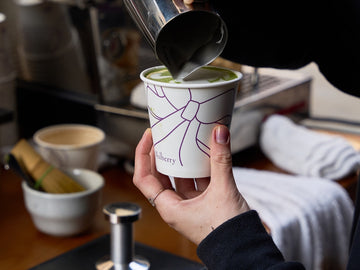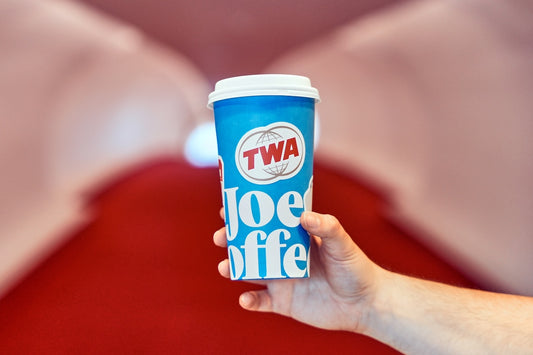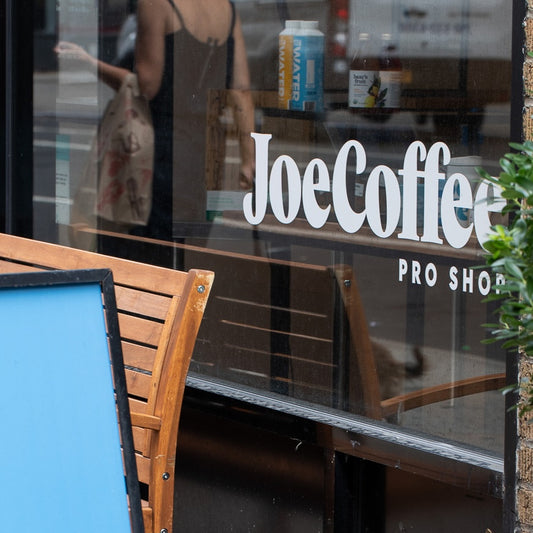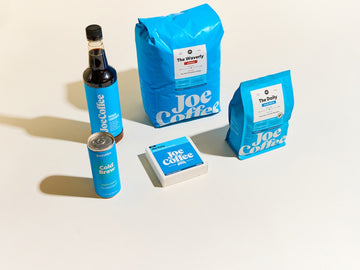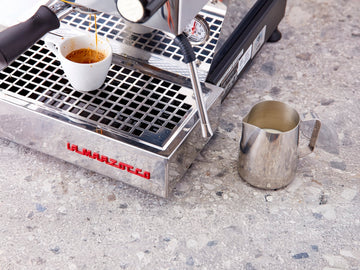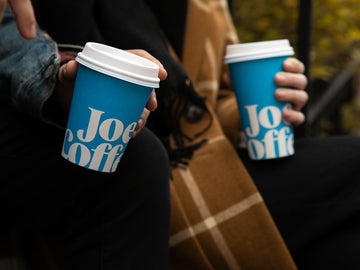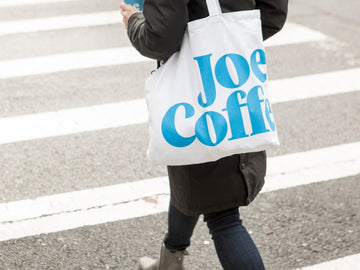We like to think of coffee as more than just a drink—it’s a connection. A connection to the people who grow it, the communities that nurture it, and the environment that makes it all possible. That’s why we’re committed to doing business in a way that respects everyone in the coffee supply chain, from farm to cup. It’s a responsibility we take seriously, and it’s what led us to develop a Code of Conduct that keeps us accountable to our values, like equity, transparency, and sustainability.
But coffee isn’t the only way we can make a difference. That’s why we’re thrilled to partner with Omanhene, a brand that’s rewriting the rules for how cocoa is sourced. Omanhene makes sure the value of cocoa stays where it belongs—within the communities that grow it. By sourcing ethically produced cocoa and implementing traceable systems, they connect customers directly with farmers. Their focus is on supporting farmers, prioritizing fairness, and driving positive change from the ground up.
Sound familiar? This is exactly the kind of relationship we want to invest in.
To dive deeper, we sat down with Steven Wallace, Omanhene’s founder, to chat about how the cocoa industry has changed, the challenges of building equity in agriculture, and some exciting innovations that are coming in 2025 to connect farmers and consumers in a whole new way.




What do you think has changed in the social equity landscape in cocoa supply streams since the day you started?
I started Omanhene in 1991, nearly 34 years ago. Since then, the concept of social equity – and the articulation of a competitive value proposition framed around social equity – has evolved. It’s become more nuanced, intentional and thoughtful. Indeed, in 1991, the concept was novel, and the nomenclature far less particular. Customers often conflated notions of single origin, manufactured at origin, fair trade, direct trade and value chain re-imagination.
While it is satisfying to be one of the first movers in what might be called the commercial social equity space, we had to invest quite a bit (more than we could really afford, in retrospect) in educating potential customers about value chains in general and the cocoa value chain in particular.
Note that the coffee value chain differs significantly from the cocoa value chain especially when it comes to trying to improve the economic climate for farmers. You can’t credibly add value by roasting a coffee bean in Tanzania and then trying to serve it in Brooklyn; the market demands that you roast your coffee beans very close in time and geography to your customer who wants a freshly brewed mocha. By contrast, with cocoa, you can ferment, sun dry, roast and extract cocoa liquor, butter and cake at origin without sacrificing freshness. What’s more, roasting the cocoa beans at origin means you capture additional value at origin and improve the flavor, aroma and overall freshness of the cocoa powder we use to make Omanhene Hot Cocoa Mix. So, the coffee and cocoa value chains present different challenges for those of us concerned with social equity. But thoughtful participants in both the coffee and cocoa sectors are trying to do the same thing: capture increased value for farmers occupying the lowest rungs of agricultural value chains. It’s just that the solutions for “capturing value at origin” are not one-size-fits-all propositions.
If you could tell a barista face to face "One thing you need to know to convey value to customers" what would you say?
I’d ask the question, “Where does good chocolate come from?” Most people answer “Switzerland” or “Belgium”. I then ask, “How many cocoa trees do you think grow in Zurich?” The answer, of course, is zero. This is the problem.
How did the cocoa value chain get so skewed in favor of Europe at the expense of origin players? The global chocolate market is valued at upwards of $130 billion – and only 6 percent goes to farmers in origin countries. The remaining 94% or over $122 billion remains in the hands of processors and retailers most of whom are located far from the farms that grow the cocoa.
Omanhene set out 34 years ago to work some value chain jiu-jitsu in an effort to recapture value at origin.
What are you most looking forward to in 2025?
This coming year we’ll test our EcoWise “Direct Connect” platform with Joe Coffee as our inaugural customer. We’ve invested in first mile traceability and a digital payment platform such that we can guarantee transparency from a customer’s mocha or hot cocoa to the farmer who grew the beans that produced the cocoa in that customer’s cup. What’s more, the farmer can thank you for buying your beverage at Joe Coffee and you can thank the farmer for growing the cocoa that warms your belly. You can even send a tip with a tap of your phone or by rounding up when you pay for your beverage. And our platform allows you to see how much tip money is actually received in the farmer’s digital wallet so there is full transparency and accountability. A 3-cent tip would double the income of an average West African cocoa farmer and transform their family and the local economy. But more importantly, I’m excited by the fact that we’ll bring people together from across the world. Farmers and consumers will communicate directly and in so doing, we can make the world a smaller, safer, and more just place.
Join us on February 13th from 7:00 PM to 9:00 PM for Seed to Cup: Chocolate Supply Stream, a class led by Steve. Open to the public, this session explores the humanitarian issues within the cocoa industry and highlights how ethical sourcing ties into running Joe.
Tickets are now available on our website —reserve yours today!
Looking for other ways to contribute? For the month of February, we’ll be running a round-up campaign in all of our cafes, where customers can round up their totals to make a donation directly supporting cocoa farms in Ghana. This initiative helps our community contribute to sustainable farming practices and support farmers in the region.




